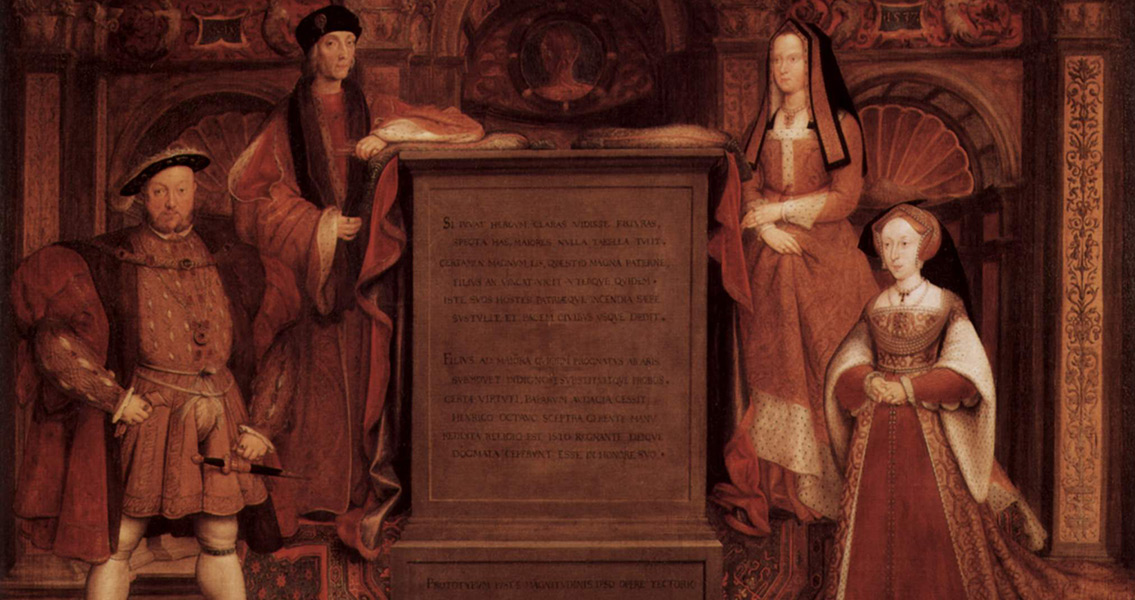<![CDATA[The 28th January marks the anniversary of the death of Henry VIII in 1547. The English king is most often remembered for his six wives, but this notoriety can often overshadow the fact that his thirty six year reign had a substantial impact on British History in the Middle Ages. By the time of his death, dramatic changes had occurred across the British Isles as a consequence of his rule. Henry, born in Greenwich Palace on the 28th June 1491, was the second son of Henry VII and Elizabeth of York. Henry VII, the first Tudor king, had taken the throne following the death of King Richard III at the Battle of Bosworth - the culmination of the War of the Roses. Despite Henry VII having only a tenuous claim to the throne, he swiftly established the rule of the Tudor dynasty. Henry was raised in Eltham Palace, in south-east London. He became heir to the throne in 1502, following the death of his older brother Arthur. Henry VII died in 1509, and his eighteen year old son inherited the throne. As a prince Henry was known to be a lover of hunting and dancing. This penchant for extravagances would continue during his reign as king. Throughout Henry's life, his relationship with the papacy was pivotal. His early reign saw him enjoy positive relations with the Catholic church. In 1511 he embarked upon the first of his major military campaigns, when he joined Pope Julius II's Holy League against France. By 1513 the campaign had proved to be costly and ineffective, further complicated by a failed attempt by the Scots to take advantage of the distraction and invade England. Nevertheless, it made Henry a popular figure in the eyes of the Church. In 1521 Pope Leo X conferred the title of 'Defender of the Faith' on Henry, for his book 'Assertio Septem Sacramentorum', which defended the supremacy of the papacy against the reforming ideas of Martin Luther. In later years however, Henry would end up at war with the Catholic Church. He was obsessed with the need for a male heir to inherit his throne. Such concerns were of course vital for many kings in this period, but especially so for Henry, as the Tudor claim to reign was still a tenuous one. His marriage to Catherine of Aragon had only borne one child, his daughter Mary, and so Henry asked his trusted adviser, Cardinal Wolsey, to appeal to the pope for an annulment. Fearing the wrath of Catherine's relative, the Holy Roman Emperor Charles V, Pope Clement VII declined the appeal. In 1533 Henry broke his marriage to Catherine, and married one of her ladies in waiting: Anne Boleyn. Although the ceremony had been secret, the pope excommunicated Henry. The event was hugely important, signaling the start of the English Reformation. Henry was established as the new head of the Church of England. His chief minister, Thomas Cromwell, oversaw the dissolution of 8oo monastries. The Reformation had a major social and cultural impact, the possessions of the Catholic Church were sold to the English gentry, allowing a new system of government bureaucracy to fill the power vacuum left by the church. Henry's impact can not only be seen in the drastic changes in church and state during his reign. When he first became king, there were only five royal warships in Britain, by the time of his death there were over fifty. He had also ordered the construction of Britain's first naval dock, in Portsmouth, and founded the Navy Board to run and administer the royal fleet, essentially laying the grounds for the Royal Navy. Popular histories of Henry VIII tend to focus on the soap opera surrounding his six wives. Henry's England however, was one of constant change and movement. The surviving architectural artefacts: St. James and Hampton Court Palaces, or the remains of the Mary Rose, a state of the art warship for its time, are testament that Henry reigned over a time of industriousness and progress. Over thirty six years English society had changed dramatically. Bureaucracy took on greater influence at the expense of the church, and the monarchy enjoyed much greater power, which lasted up until the execution of Charles I in the seventeenth century. Historians continue to debate whether Henry's reign had been a positive one for Great Britain. What cannot be denied is that Henry VIII was one of the most significant monarchs in English history. ]]>
The Death of Henry VIII
